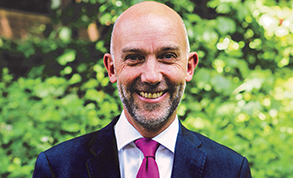Welsh boards face huge challenges despite spending increases
 The boards – Hywel Dda University Health Board and Swansea Bay University Health Board – also failed to break-even in year, the auditors said. However, both reported a broadly static financial position compared with 2020/21, with in-year deficits of £25m and £24m, respectively.
The boards – Hywel Dda University Health Board and Swansea Bay University Health Board – also failed to break-even in year, the auditors said. However, both reported a broadly static financial position compared with 2020/21, with in-year deficits of £25m and £24m, respectively.
Cardiff and Vale University Health Board met its three-year break-even duty for the first time, and, under arrangements announced previously, will not have to repay any historical deficits.
Overall, 11 of the 12 health bodies’ accounts have been audited, with the audit of Betsi Cadwaladr University Health Board, which has failed the three-year duty in recent years, ongoing. The outcome is expected soon.
The auditor general, Adrian Crompton (pictured), qualified his regularity opinion at eight of the 11 health bodies because the accounts included payments and funding for clinicians’ tax liabilities. The payments were issued following a ministerial direction, and restored the value of clinicians’ pension benefits, where taking on additional work increased pension tax liabilities.
He noted there was a similar direction to health bodies in England, and that the policy aimed to reduce waiting lists by incentivising clinicians to take on additional sessions.
Though the sums involved are relatively small (£7m against total in-year expenditure of £10bn), the auditor general said the transactions were material and irregular because they ran contrary to Managing Welsh public money and leave the exchequer worse off.
Mr Crompton said the NHS financial position remained ‘extremely challenging’ despite the considerable funding made available in 2021/22, including ongoing support in responding to the pandemic.
‘The pressures on NHS Wales continue as it shifts to recovery mode and responds to new cost and demand pressures including the significant backlog of planned care,’ he continued.
‘I have qualified my regularity opinions at eight of the 11 NHS bodies whose accounts were published today. All those qualifications relate to these pressures, either overspending against financial limits, or funding of clinicians’ pension tax liabilities to facilitate clinicians taking on additional work in face of growing demand and staff shortages.’
Health minister Eluned Morgan said the deficits reported by Hywel Dda and Swansea Bay health boards were in line with initial plans developed before the pandemic. She added that it was unlikely that Betsi Cadwaladr would meet its break-even duty.
Darren Hughes, Welsh NHS Confederation director, said the health service had been through the most difficult time in its history, and huge challenges lay ahead. The Welsh government should now prioritise and clarify funding to the NHS and its partners to improve patient outcomes, and service quality and safety.
A new funding model was needed, he added.
‘There is a pressing need for the Welsh government to review the long-term funding model for health and social care to ensure future sustainability, including long-term investment in capital funding,’ he said.
‘Without this, it’ll be very difficult for the NHS to deliver on the recovery plan and to confidently provide the people of Wales with the high-quality care they deserve.’
Related content
We are excited to bring you a fun packed Eastern Branch Conference in 2025 over three days.
This event is for those that will benefit from an overview of costing in the NHS or those new to costing and will cover why we cost and the processes.